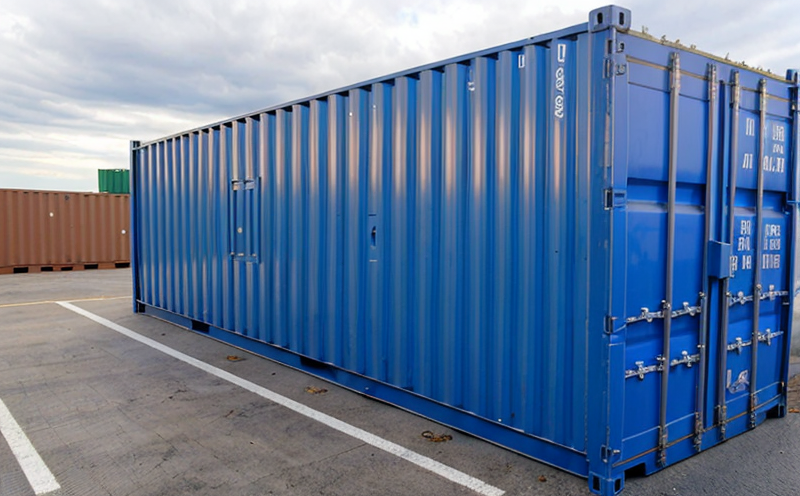BS EN ISO 11359 Thermal Expansion Testing of Plastic Storage Plastics
The British Standard European Norm (BS EN) ISO 11359 specifies a method for the determination of linear thermal expansion of plastic materials used in storage and container applications. This test is particularly crucial for industries dealing with containers, tanks, and other plastic storage solutions that are exposed to temperature variations during their lifecycle.
The primary objective of this testing procedure is to ensure that plastic storage containers maintain dimensional stability under varying temperatures. The thermal expansion characteristics can significantly influence the performance, durability, and safety of these materials in real-world conditions. Understanding how a material expands or contracts with temperature changes allows for more accurate design and manufacturing processes.
For industries such as chemical processing, pharmaceuticals, and food and beverage packaging, this test ensures that plastic containers do not leak or deform under expected thermal stress. The test is also essential for compliance with international standards and regulations related to the storage of hazardous materials.
The testing process involves subjecting samples to a controlled temperature change over time while measuring linear expansion using precision instruments. Samples are typically rectangular prisms, cylinders, or other shapes relevant to their intended use. The method helps in identifying materials that may not be suitable for certain applications due to excessive thermal expansion or contraction.
Thermal expansion testing is an integral part of the quality control process within manufacturing plants and R&D departments. By adhering to this standard, companies can ensure product reliability and safety while minimizing potential risks associated with material failure in storage containers.
Scope and Methodology
| Test Parameters | Description |
|---|---|
| Temperature Range | From -50°C to +150°C, controlled in a laboratory environment. |
| Time Period | Typically 24 hours at each temperature point for accurate expansion measurement. |
| Type of Samples | Rectangular prisms or cylinders with dimensions specified by the standard. |
| Instrumentation | High-precision micrometers and laser displacement sensors. |
The testing process begins by preparing specimens according to ISO 11359. Specimens are carefully cut from production batches or test samples to ensure they represent the material's typical properties. After conditioning in a controlled environment, the specimens are subjected to temperature variations as specified in the standard.
During the test, precise measurements of linear expansion are taken using high-precision instruments. These measurements are recorded at specific intervals throughout the testing period. The data collected is then analyzed to determine the thermal expansion coefficient (α) for each sample. This value indicates how much a material will expand or contract per degree Celsius change in temperature.
The results of this test can be used to compare different materials, predict performance under varying environmental conditions, and ensure compliance with regulatory requirements. It also helps manufacturers optimize their products by selecting the most suitable plastic types for specific storage applications.
Why Choose This Test
Selecting BS EN ISO 11359 Thermal Expansion Testing is essential for several reasons:
Ensures dimensional stability of plastic containers under temperature variations.
Aids in compliance with international standards and regulations related to storage materials.
Improves product reliability and minimizes risks associated with material failure.
Helps manufacturers optimize their products by selecting the most suitable plastic types for specific applications.
This test is particularly beneficial for industries dealing with hazardous materials, where any leakage or deformation could have severe consequences. By adhering to this standard, companies can ensure product reliability and safety while minimizing potential risks associated with material failure in storage containers.
Customer Impact and Satisfaction
Enhanced customer trust due to compliance with international standards.
Increased market competitiveness by offering reliable, high-quality products.
Improved reputation among regulatory bodies for adherence to best practices.
Reduced risk of product recalls and associated costs.
Satisfied stakeholders, including suppliers, distributors, and end-users who rely on the integrity of storage containers.
The results of this testing can be shared with customers to demonstrate commitment to quality and safety. This transparency fosters long-term relationships and builds a reputation for excellence in material performance.





